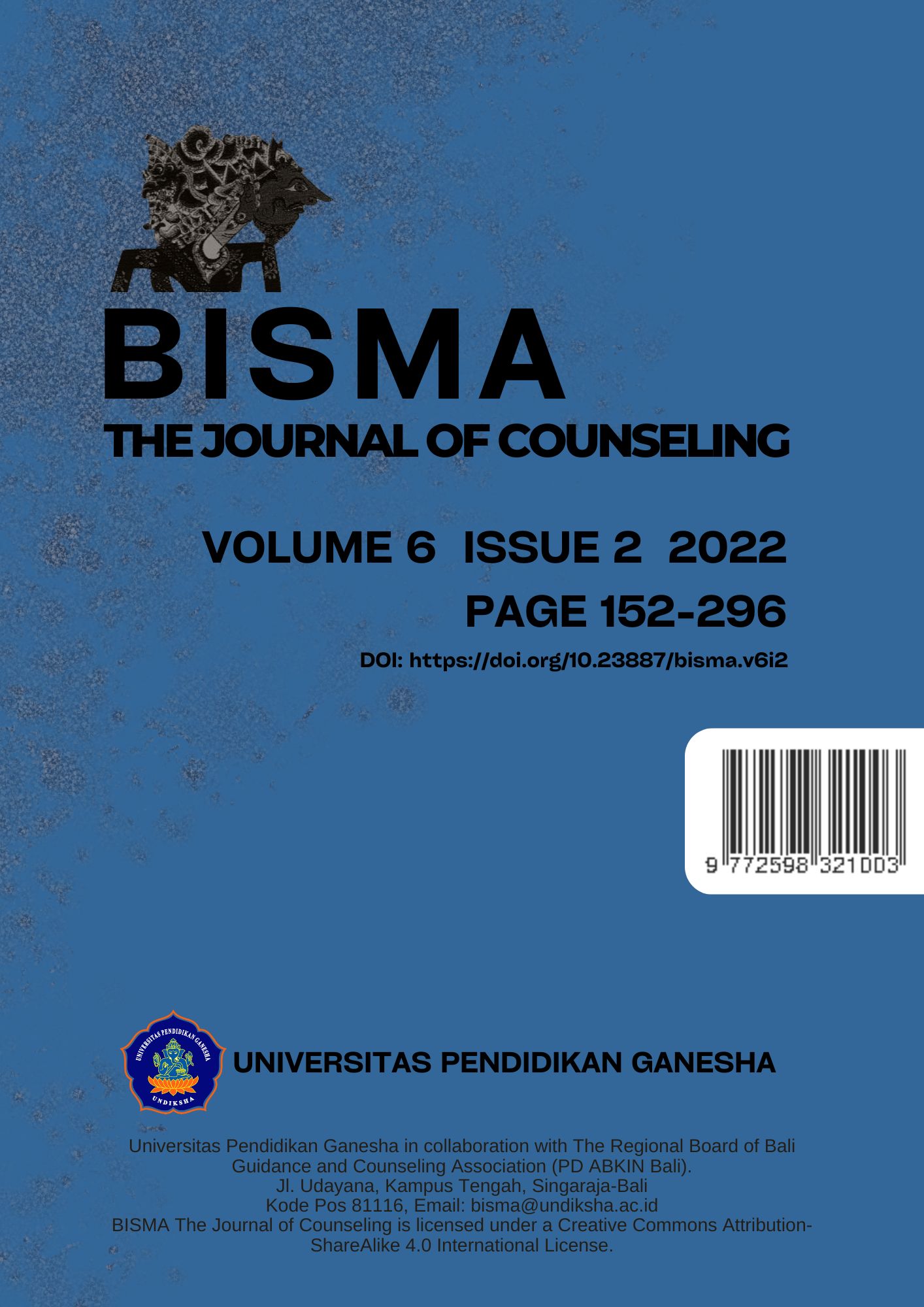Effectiveness of Leadership Tungku Tigo Sajarangan in The Development of Nagari Nyiur Lambai Pelangai
DOI:
https://doi.org/10.23887/bisma.v6i2.48586Keywords:
Leadership, Tigo Sajarangan, Nagari DevelopmentAbstract
The purpose of this study was to determine the effectiveness of the leadership of Tigo Jarangan in the development of Nagari Nyiur Melambai Pelangai, Ranah Pesisir District, Pesisir Selatan Regency. This study uses a descriptive method with a qualitative approach and uses an informant sampling technique. For data collection used observation or observation methods, documentation and interviews. So the results and discussion of this study indicate the implementation of leadership from the ulama, cadiak clever and penghulu in building the nagari together and working together for the future of the younger generation and the nation. The background of the problem in this study is the lack of coordination between formal leaders and traditional leaders, namely the ulama, outskirts of intelligence and the penghulu, the lack of loyalty or cooperation between the tigo sajarangan furnace and the formal leaders, the lack of roles from the ulama, cadiak clever and penghulu to build a nagari from a physical point of view and provide direction.
References
Abalkhail, J. M. (2022). Dysfunctional leadership: investigating employee experiences with dysfunctional leaders. Career Development International, (ahead-of-print).
Amegayibor, G. K. (2022). Leading local government during COVID-19: An empirical finding from Ghana. Annals of Human Resource Management Research, 2(1), 43-58.
Apriana, D., Kristiawan, M., & Wardiah, D. (2019). Headmaster’s competency in preparing vocational school students for entrepreneurship. International Journal of Scientific & Technology Research, 8(8), 1316-1330.
Contreras, F., Baykal, E., & Abid, G. (2020). E-leadership and teleworking in times of COVID-19 and beyond: What we know and where do we go. Frontiers in Psychology, 11, 590271.
Dempsey, C. C. (2022). Nursing Leadership Across the Continuum: The Nurse Leader in Industry. Nursing Administration Quarterly, 46(4), 283-290.
Espinoza, S. (2020). To be continued: Carl Glickman’s work as the beginning of the story. Journal of Educational Supervision, 3(2), 83.
Fatimah, S. 2011. Kepemimpinan Tradisional Masyarakat Minangkabau pada Masa Pendudukan Jepang.
Gustituati. 2021. Manajemen pendidikan: Landasan teori & perkembangannya. Padang: UNPPress
Handrianto. 2011. Strategi Pembelajaran Sistem Mentoring (Mentoring System) dalam Usaha Membangun Karakter Remaja di Sekolah Menengah Atas. Conference of Mawapres UNP.
Kurtdede-Fidan, N., & Aydogdu, B. (2018). Life Skills from the Perspectives of Classroom and Science Teachers. International Journal of Progressive Education, 14(1), 32-55.
Maharjo. 2011. Manajemen dan Leadership dalam Budaya Minangkabau. Universitas Brawijaya Press.
Mahmud, A., Ding, D., & Hasan, M. M. (2021). Corporate social responsibility: Business responses to Coronavirus (COVID-19) pandemic. SAGE open, 11(1), 2158244020988710.
Pan, J., Liu, S., Ma, B., & Qu, Z. (2018). How does proactive personality promote creativity? A multilevel examination of the interplay between formal and informal leadership. Journal of Occupational and Organizational Psychology, 91(4), 852-874.
Patil, S., & Rao, V. S. (2021). Response Control of Wind-Excited Outrigger Structural System. In Smart Sensors Measurements and Instrumentation (pp. 413-420). Springer, Singapore.
Peraturan Daerah Kabupaten Pasaman Barat Nomor 2 tahun 2008 tentang
Peraturan Daerah Propinsi Sumatera Barat Nomor 2 tahun 2007 tentang pokok –pokok Pemerintahan nagari.
Rafni, Suryanef, Yusran, & Indrawadi, J. (2008). Marjinalisasi dan Pemberdayaan Masyarakat Adat dalam Penyelenggaraan Pemerintahan Nagari di Sumatera Barat. Jurnal Demokrasi.
Rivera-McCutchen, R. L. (2021). “We don’t got time for grumbling”: Toward an ethic of radical care in urban school leadership. Educational Administration Quarterly, 57(2), 257-289.
Rizki, M., Parashakti, R. D., & Saragih, L. (2019). The effect of transformational leadership and organizational culture towards employees’ innovative behaviour and performance.
Soares, F., & Sudarsana, I. K. (2018). Religious Harmony Among Senior High School Students Multicultural Education Case Study in the Cova-Lima District of East Timor. Vidyottama Sanatana: International Journal of Hindu Science and Religious Studies, 2(1), 154-162.
Van Zyl, E. (2018). Peace Leadership. eBook Partnership.
Wibowo, A., & Saptono, A. (2018). Does entrepreneurial leadership impact on creativity and innovation of elementary teachers?. Journal of Entrepreneurship Education, 21(2), 1-9.
Downloads
Published
Issue
Section
License
Copyright (c) 2022 Rika Aniska, Tati Pure, Nurhizrah Gistituati

This work is licensed under a Creative Commons Attribution 4.0 International License.









